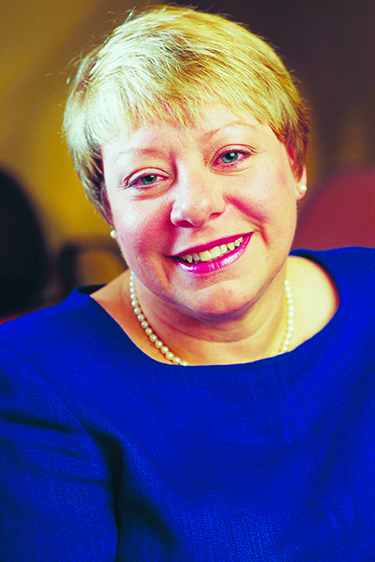The Central Texas Angel Network offers practical tips for becoming an entrepreneur.
 Have you dreamed of starting your own business? Is there an idea that keeps you awake at night? Rest easy because you are not alone. There are plenty of people and places in Austin that are dedicated to helping you realize your dream. AW has gathered advice from some of the leaders in our booming startup culture. We have also created resource guides to help you begin your endeavor. Join the founders of HomeAway, Bazaarvoice, Indeed, RetailMenot and other successful startups that hail from Austin. This is the place, and the time is now, so take the leap and we may be writing your story next year.
Have you dreamed of starting your own business? Is there an idea that keeps you awake at night? Rest easy because you are not alone. There are plenty of people and places in Austin that are dedicated to helping you realize your dream. AW has gathered advice from some of the leaders in our booming startup culture. We have also created resource guides to help you begin your endeavor. Join the founders of HomeAway, Bazaarvoice, Indeed, RetailMenot and other successful startups that hail from Austin. This is the place, and the time is now, so take the leap and we may be writing your story next year.

Claire England
Though she’s just two months into her new role as executive director of the Central Texas Angel Network, Claire England seems completely at home. Some may be familiar with the Austin native, who made a name for herself working as the communications director for several local nonprofits, including Caritas and Foundation Communities. Three years ago, England switched gears and left the nonprofit sector to work for the RISE conference, a weeklong free conference that provides funding opportunities, networking events and workshops for entrepreneurs throughout Austin.
“I was interested in moving into a leadership position, so I spent some time growing my network and attended the RISE conference and South By Southwest. I became more and more interested in our entrepreneur ecosystem here in Austin. … As I learned more about entrepreneurship and startups, I realized just how incredibly creative, innovative and driven startup founders are. I found that fascinating, and I wanted to find any way I could to help them,” England says.
During the two years she served as executive director of the RISE conference, England worked to expand the conference’s reach and improve the quality of special events and sessions. Her efforts paid off; Forbes named the RISE conference one of their must-attend conferences in 2013.
“Over the course of its history, I think RISE was instrumental in helping to create a cohesive ecosystem here. It brings together everyone in the entrepreneur ecosystem for one week,” England says.
“I think it’s really key for a community to have the opportunity to come together and have a chance to connect with thought leaders, fellow entrepreneurs and investors.”
An avid traveler, England became fascinated with the international entrepreneur ecosystem during a backpacking trip throughout Europe. She got the opportunity to fulfill that interest through a contract position with SXSW Interactive, during which she organized events specifically for international entrepreneurs and helped to create a program designed to welcome inter- national startup founders to SXSW Interactive.
“For those of us from Austin, South By Southwest is overwhelming. There’s a lot that happens in the five days of South By Southwest Interactive. You can only imagine how confusing it could be for someone coming from a foreign country to try and figure out where they should put their time and energy during the conference, and how they can get the most out of their visit to Austin and South By Southwest,” England says.
After achieving great success integrating both local and national organizations into Austin’s startup ecosystem, England caught the attention of the Central Texas Angel Network, the largest angel investment network in Texas.
“It’s an incredibly exciting position and an awesome organization. I’m impressed daily by the quality of our investors and portfolio companies,” England says. England describes the mission of CTAN as two-fold: to educate Angel investor members and provide them with quality investment opportunities, and to be a resource for funding, education and mentorship for entrepreneurs. The Angel Network model can be especially beneficial for those new to investing or who are just beginning to build a portfolio.
“What an Angel Network brings to the table is a group structure for investing,” England says.
“It can be helpful for those who are new to angel investing; perhaps they’ve been a tech entrepreneur or a founder themselves, but they don’t necessarily have much investing experience.”
England says one of her main goals for CTAN is to get the organization involved more heavily in the entrepreneur ecosystem and startup community.
“I’m already beginning to meet with leaders across the ecosystem to find out what they want to see CTAN doing in the community, what their needs are and find ways for our members to get involved in their programs,” England says. For more about the Central Texas Angel Network: centraltexasangelnetwork.com.
Recommended Startup Ecosystem and Business Resources
by Claire England executive director, Central Texas Angel Network
One of the many great things about Austinites is their willingness to help others, and in few places is that so readily apparent as it is in our startup and business ecosystem. If you’re thinking about creating a business or need help with your existing business, I encourage you to reach out to some of these organizations. For many more resources, visit the Austin Entrepreneur Scene Map, curated by Bijoy Goswami of Bootstrap Austin.
Startup Accelerators and Incubators
These programs provide mentoring, services and funding to innovative startups, usually for a pre-defined period, during which your startup may be co-located with other startups in a collaborative environment. Sectors range from tech to biosciences to consumer goods and more.
- Austin Technology Incubator
- Capital Factory
- DreamIt Ventures Austin
- SKU (formerly Incubation Station)
- Tech Ranch
- Techstars Austin
- Texas Venture Labs Accelerator
- UnLTD USA
Small-Business Resources
Startups and entrepreneurs seek to create something innovative, unique, cutting-edge and, frequently, tech-focused, while small businesses typically focus on more traditional products or services and are a critical part of our economy. When small businesses need advice or help, they should contact one or more of these programs, some of which provide free assistance and classes:
- Austin Independent Business Alliance
- BiGAUSTIN
- Business Success Center
- City of Austin Small Business Program
- PeopleFund
- SCORE Austin
- Texas State Small Business Development Center
Startup and Business Resources
- Austin Startup Week
- Austin Technology Council
- Austin Asian Chamber of Commerce
- Austin Black Chamber of Commerce
- Austin Chamber of Commerce
- Austin Gay and Lesbian Chamber of Commerce
- Austin Hispanic Chamber of Commerce
- Entrepreneurs’ Organization
- Rice Alliance for Technology and Entrepreneurship, Austin chapter
- Startup Grind Austin
- TechShop Austin-Round Rock
- TeXchange Austin
- TiE Austin
Women-Focused Startup and Business Resources
- AVINDE Startup Acceleration for Women
- SheHacksATX / SheDesignsATX
- Women’s Business Center (via U.S. Small Business Administration and BiGAUSTIN)
- Women’s Chamber of Commerce of Texas
- Women Who Code, Austin chapter
Startup and Business Networking
There is a plethora of business-networking opportunities in Austin. You can find meet-ups for online marketers, hardware startups, mobile developers, co-founders, product management and much more. Search meetup.com, Google your sector or explore the calendars of groups such as Capital Factory and Tech Ranch.
Women-Focused Startup and Business Networking
- Austin Leading Ladies
- Austin Women in Technology
- eWomen Network, Austin chapter
- Fabulous Working Ladies, Austin chapter
- Global Women Entrepreneur Network (GWEN), Austin chapter
- National Association of Professional Women, Austin chapter
- Texas Women in Business
- Women@Austin

Laura Kilcrease
In recent years, Austin has been recognized as a hotspot of economic activity and lauded with praise for its entrepreneurial climate, particularly in the technology sector. Laura Kilcrease, founder of the Austin Technology Incubator, is, without a doubt, one of the driving forces behind Austin’s economic transformation. Austin isn’t where her story starts, however. The London native first gained her appreciation for business working for a British Fortune 1000 company that was involved in a joint venture with another company.
“I got this great opportunity to really look at a joint venture from all aspects. As a consequence, I got involved in everything from sales to invoicing to manufacturing to the warehousing—every single aspect of the company. It was just so fascinating,” Kilcrease says. Kilcrease also credits her deep functional understanding of business to that early experience.
“I’m equally comfortable sitting in a boardroom as I would be on the manufacturing floor or talking to a customer. Understanding the interrelationships of these things is important,” Kilcrease says.
“It’s kind of like having a fine watch. In an organization, you have big wheels and small wheels. Every part is important. If one part doesn’t work, the whole thing doesn’t work as it should. … It’s a continual learning process; you never stop learning.”
When Kilcrease arrived on the scene in Austin in the late ’80s, her keen business sense allowed her to hone in on the abundance of unharnessed potential in the community.
“Being a foreigner here on a new block, I thought, ‘We’ve got such smart people and we’ve got all this technology, but no one is doing anything with it.’ We had the sixth-most vacant office buildings in the U.S., one of the highest unemployment rates and a population of 480,000,” Kilcrease says.
“I have the fundamental belief that if people wish to work and earn money, they should have that right. But jobs don’t get created because we talk about creating them; jobs get created because people start companies.”
That realization eventually led Kilcrease to found the Austin Technology Incubator while serving as the executive director of the IC2 Institute at the University of Texas. The ATI was one of the very first incubators in the United States and the first in Austin. At the time, technology incubators were not as common as they are today.
“It was a whole new concept, bringing in multiple entrepreneurs into a single system for expertise, training and access to capital,” Kilcrease says.
In 1999, Kilcrease founded Triton Ventures, a venture capital company focused on spinoff and startup technology companies. At the time, Triton Ventures was one of only two venture capital companies in town, and the only one with a woman at the helm. According to a 2014 study by Babson College, only about 6 percent of venture capital partners are women, and only 15 percent of venture capital-backed companies have a female executive.
“Women-owned businesses are still receiving a very small percentage of all the available capital. I think there needs to be a playing field for anyone who wants to play a big part in investing in companies, be it a woman or a man or anyone else. We’re now truly seeing an evolution in the last decade of women getting into high-growth businesses,” Kilcrease says.
These days, Kilcrease is once again in transition. She’s in the process of winding down her venture capital work with Triton Ventures and turning her focus back to simply doing what she can to improve Austin’s entrepreneurial ecosystem. Rather than a venture capitalist, she prefers to call herself a “venture catalyst,” the force behind the great thinkers and doers of Austin.
“There have been stages of my life where I’ve done good things for the community, and stages of my life where I’ve done well for myself and my family,” Kilcrease says. “I’m now at the stage of my life where I want to combine doing good things and doing well.”
Laura Kilcrease’s Five Essentials For a Successful Business
- A personal advisory board. “Find no more than five people who you respect and trust and have different skills to use as your personal advisory board.”
- A good company culture. “The manner in which you create the culture of your company is paramount to success.”
- Persistence. “Nothing worthwhile will come easy.”
- Working smart. “Don’t work another 10 hours a day. Instead, get the right advice, the right connections and the right network to help you be more efficient.”
- Enjoying what you do. “When you reach the point that it’s no longer fun, look for a change in role that makes sense for you as an entrepreneur.”

Tips for Making a successful Pitch
By Monique Maley Founder and President, Articulate Persuasion Member, Central Texas Angel Network
Investors are buying your business, not your product. Most entrepreneurs spend 90 percent of their pitch telling investors about the features and benefits of their product or service and run out of time to tell them about the market, competition and financials. If you want investors to buy your product, sell them on your product, but if you want them to buy your business, tell them how your business is going to make money.
Identify who your customers are. Investors want to know who is paying you, how many of them are out there and why they will make the decision to work with you. Don’t make investors sit through a bad presentation. With great PowerPoint comes great responsibility. Like so many presenters, entrepreneurs make common PowerPoint mistakes. They don’t realize a bad slide deck makes it hard for investors to understand their business and the opportunity. Follow the basic rules of good presentations when putting together your slides. Keep it clear, readable and to the point. You are the presentation, not your slides.
Plan your pitch, don’t memorize it. You shouldn’t need to memorize a script to talk to investors about your business. Plan your pitch and practice it out loud. It will make your presentation clear and conversational rather than formal.
Don’t just plan your pitch, plan the Q&A. Sometimes entrepreneurs give a great pitch and lose it on the Q&A. This can be the most valuable part of the pitch for investors. Anticipate investor questions and prepare short, precise answers. You’ll get to answer more questions, convey conviction and show investors you are the person to make your business successful.

Angel Advice
by Rosa L. McCormick Managing Director, Wild Basin Investments Board Member, Central Texas Angel Network
Is Angel investing for you? Five Things to Know
- Angel investing is fun. Startup investing is exciting, interesting and a great way to meet talented, motivated entrepreneurs and investors who are working hard to make a real impact.
- More women are becoming angel investors. Historically, women have been a small percentage of angel investors. However, this is changing. Women represented about 5 percent of angel investors a decade ago. Today, that percentage is roughly 20 percent.
- Angel investing involves risk. Angel investors must be willing to invest money in situations with a lot of uncertainty. Each company is taking on a challenge and there is no guarantee of success. If you invest in several companies, it is likely that one or more will fail entirely.
- Angel investing can be time-consuming. Investors look at many companies but invest in only a small percentage of the ones they see. Meeting with entrepreneurs and doing due diligence on a potential investment takes time.
- Angel investors need a portfolio. Since Angel investments are risky, experienced investors spread out their investment dollars. Ten to 12 investments is a typical portfolio size. Before diving in, investors should consider the total amount they want to invest and think about sizing each investment to be able to build a portfolio and participate in follow-on rounds.
Tips for Entrepreneurs Seeking Investment
Take advantage of our city’s entrepreneurial climate. Get out and talk to people about your business idea. In Austin, folks will give you their advice and feedback for free. There are also many events in which entrepreneurs can talk to active investors and get feedback.
Decide if angel investment is right for your business. In short, receiving angel investment means making an implicit promise to work toward high growth and an exit scenario.
Know your industry and competition. Investors may not have any familiarity with your industry. The more complete your knowledge is, the better you will be able to communicate your competence to potential investors.
Gather a team. Get co-founders or an early executive team who have the skills necessary to make your business successful as early as you can. Investors love complete teams.
Do your homework on potential investors. This is a long-term relationship that requires mutual respect, so talk to people who have worked with them before.
Be receptive to feedback. Investors may see patterns that you don’t because you are deep into a specific project. Investors like to invest in entrepreneurs who will take their concerns and opinions seriously.
Be confident. Setbacks are a part of any startup, and the ability to adjust your approach and persevere is key. This is just as true for fundraising as it is for the operational aspects of a business.
Additional Resources
Compiled by Stephanie Bennett and Daniel Azneer
- AngelList: Create your profile and start the search for your team and potential investors in a matter of minutes. This is great for investors interested in investing in early stage startups.
- Austin Business Journal: Stay up to date on local business news and resources.
- Forbes: Stay up to date on worldwide business news and financial information.
- Fundable: This is a crowdfunding platform for small businesses that offers both rewards-based and equity-based campaigns.
- Indiegogo: This is an online crowdfunding site that makes it easy to create a campaign page and raise money for any project.
- Kickstarter: This is an online crowdfunding site specifically for creative projects.
- Kiva: This is a nonprofit organization with a mission to connect people through lending to alleviate poverty. Lend as little as $25 to help create opportunity throughout the world.
- LiftFund (formerly Accion Texas): This designated community- development financial institution (CDFI) provides credit and services to small businesses and entrepreneurs.
- Pipeline Fellowship: This is an angel investing boot camp for women, and is designed to increase diversity within the angel investing community.
- U.S. Small Business Administration: Loans, funding, classes, resources, contracts and other services are available to assist small businesses.
- AW Media Events: Gatherings at Austin Woman events—from monthly launch parties to the annual anniversary event held each September—have proven to be excellent places to network, meet successful entrepreneurs and find a like-minded mentor.
Photo by Korey Howell



1 Comment
What a great post! Thank you for writing